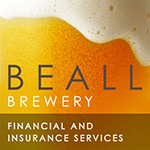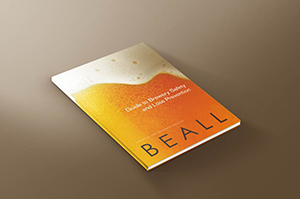Barrel-aging beer is no new trend. But as the number of US craft distilleries continues to rise (the number grew nearly 35% from 2012 to 2017, and now tops 1500 total), barrel usage is hotter than ever. And that’s not the only facet of the brewery distillery relationship.
Across the nation, craft breweries small and large continue to experiment with barrel-aging their brews. Different types of barrels—think Japanese whisky. Different outcomes (think Ballast Point’s 5.2% ABV Western Standard Saloon Lager). Even Big Beer is dipping a toe in the barrel-aging waters. Budweiser has made headlines with its Jim Beam partnership and resulting Budweiser Reserve Copper Lager.
And now craft distilleries have started a movement to age their spirits in beer barrels.
The brewery-distillery cycle doesn’t start and end with barrels, either. Some breweries have sent out their brews to be distilled. A number of craft breweries have launched distilling projects and brands. And some distilleries partner with breweries to make spirits from the beer recipes.
This is a twist bound to appeal to many craft breweries, who invest so much creativity into developing and evolving their beer recipes.
Before You Launch a Brewery Distillery Relationship
But before you dive too deep into a relationship with a local distillery, consider some of the issues that may crop up:
- If you obtain barrels from a local distillery, how will you transport those barrels? How will you store them? How will you prevent contamination (mold, for instance)?
- If you share your barrels with a distillery, you’ll need to consider those same issues. Additionally, you may need to include in your agreement with the distillery which party is responsible for maintenance and de-contamination of the barrels. A written agreement can be a life-saver if, down the line, something goes wrong and the friendly business relationship disintegrates.
- If you develop a spirits brand at your brewery, how does that impact your liquor liability exposure? How does it impact your insurance carrier’s decision to insure your business? Are you legally able to distill spirits on the same premises where you brew beer? Does your business license cover both endeavors?
- If you decide to do your own distilling, you’ll need to take a close look at your commercial property coverage as well, to make sure your still, your barrels, and all your other equipment has the protection it needs.
The craft spirits movement can be a great inspiration for your craft brewery. But just as with any new project, you need to make sure that you dot your Is and cross your Ts. Check with your insurance agent to find out what changes you may need to make—and if distilling on your brewery premises will be perceived negatively by your insurance carrier. The last thing you want to do is lose your coverage as a result of your new endeavor!
For more than 25 years, Beall Financial and Insurance Services, Inc., has been helping corporations and individuals protect their most important assets. The agency’s client base covers a spectrum of niche businesses, such as craft breweries, that require specialized insurance packages and knowledge. With California offices in Redlands and Newport Beach, Beall Financial and Insurance Services serves clients nationwide.


